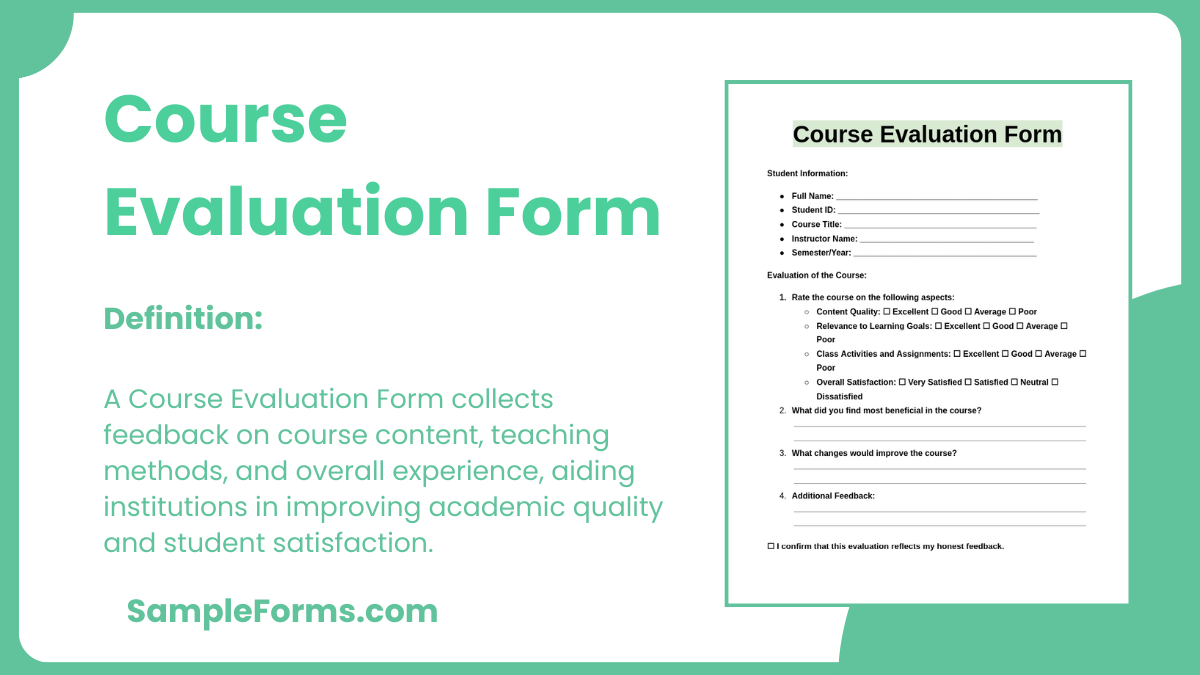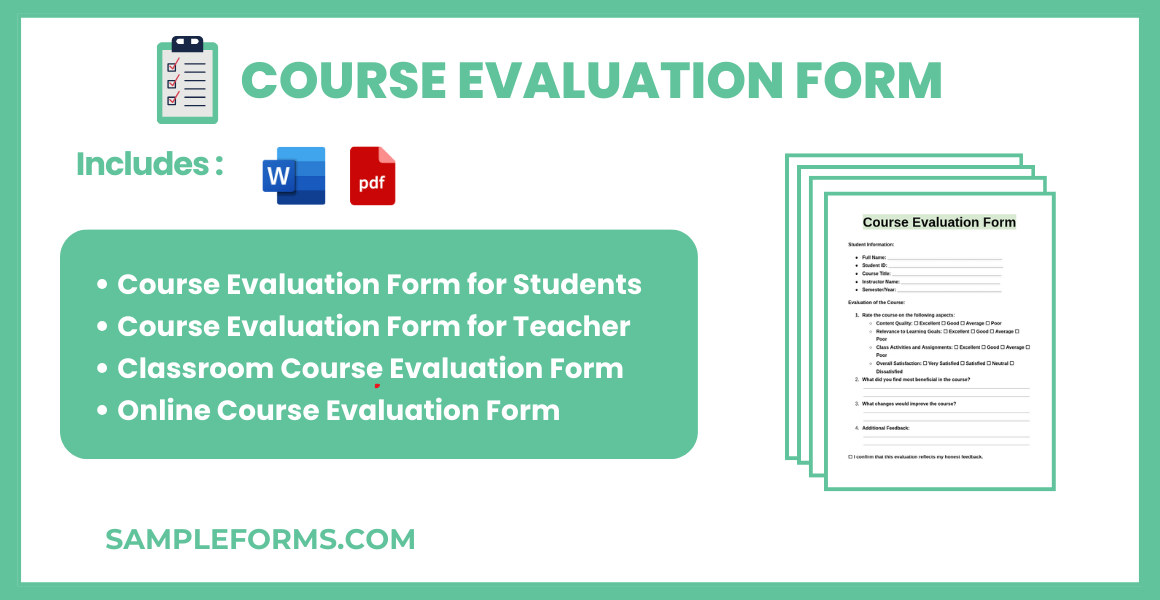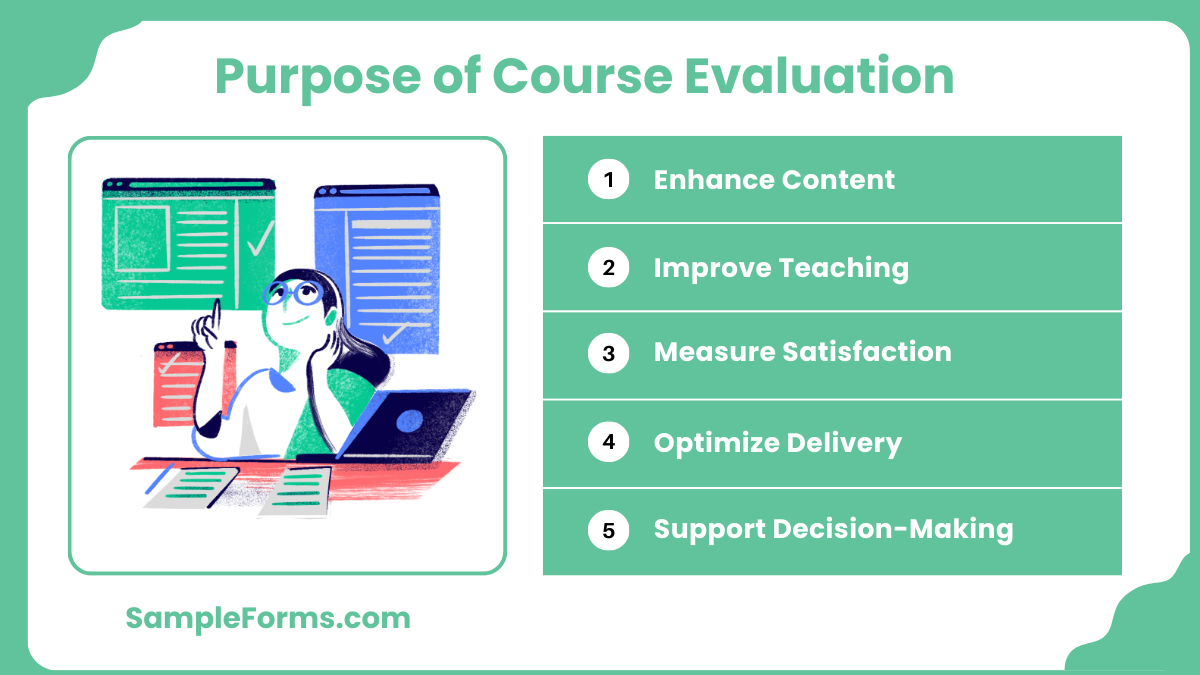An Evaluation Form is a powerful tool to collect feedback and assess the effectiveness of a course. This guide offers comprehensive insights and Examples for crafting impactful Course Evaluation Forms, whether for students, teachers, classrooms, or online courses. From understanding what questions to ask to structuring forms for maximum usability, this guide provides actionable steps to gather meaningful feedback. Learn how to use evaluation forms as a pathway to enhance learning experiences, improve instructional strategies, and align course outcomes with student goals. Transform evaluations into valuable resources for academic and professional growth.
Download Course Evaluation Form Bundle
What is Course Evaluation Form?
A Course Evaluation Form is a structured document used to gather feedback from students or participants about the quality, content, and delivery of a course. These forms provide insights into what worked well and areas for improvement, ensuring continuous enhancement of the learning experience. By including targeted questions, evaluation forms help educators and institutions align their teaching methods and course content with student expectations and learning objectives. They are essential for maintaining academic excellence and fostering a culture of improvement in educational settings.
Course Evaluation Format
Heading: Course Evaluation Form
Course Details:
- Course Name: [Insert Course Name]
- Instructor’s Name: [Insert Instructor’s Name]
- Course Duration: [Insert Duration]
Evaluation Questions:
- Clarity of Content: [Provide a rating or comments]
- Instructor’s Engagement: [Provide a rating or comments]
- Course Relevance: [Provide a rating or comments]
Suggestions for Improvement:
[Insert comments or suggestions.]
Signature:
- Evaluator’s Signature: [Insert Signature]
Course Evaluation Form for Students
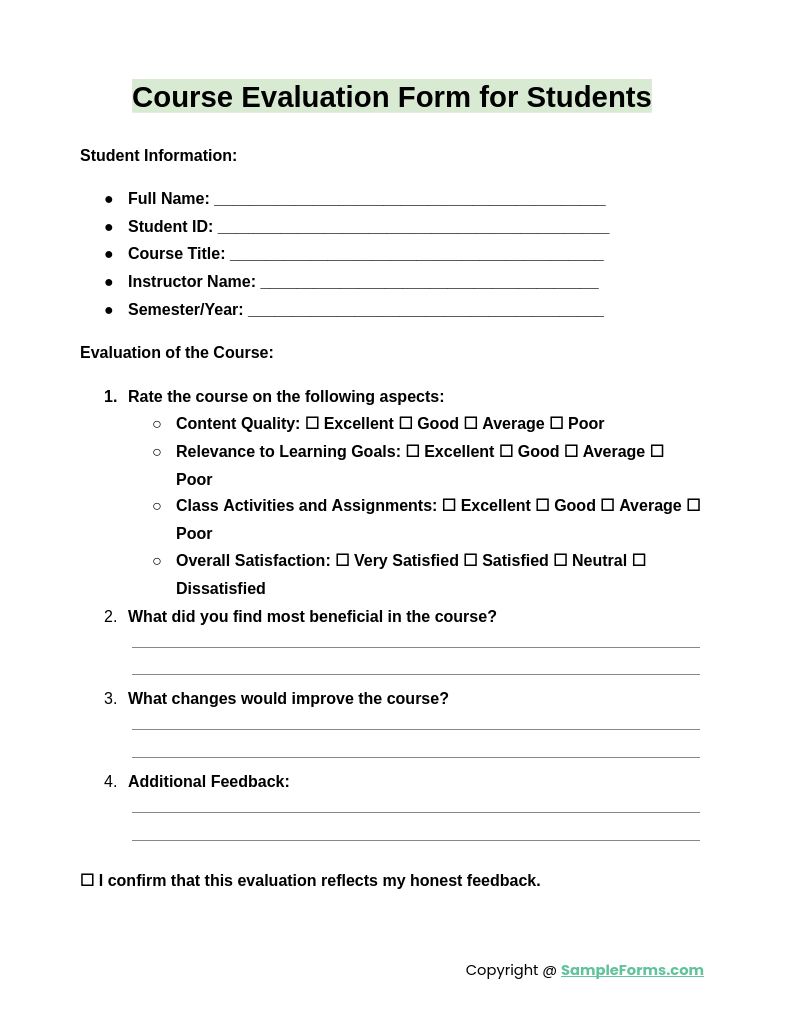
A Course Evaluation Form for Students gathers feedback on course content, delivery, and effectiveness. It highlights students’ learning experiences and identifies areas for improvement, similar to an Employee Evaluation Form used in professional settings.
Course Evaluation Form for Teacher
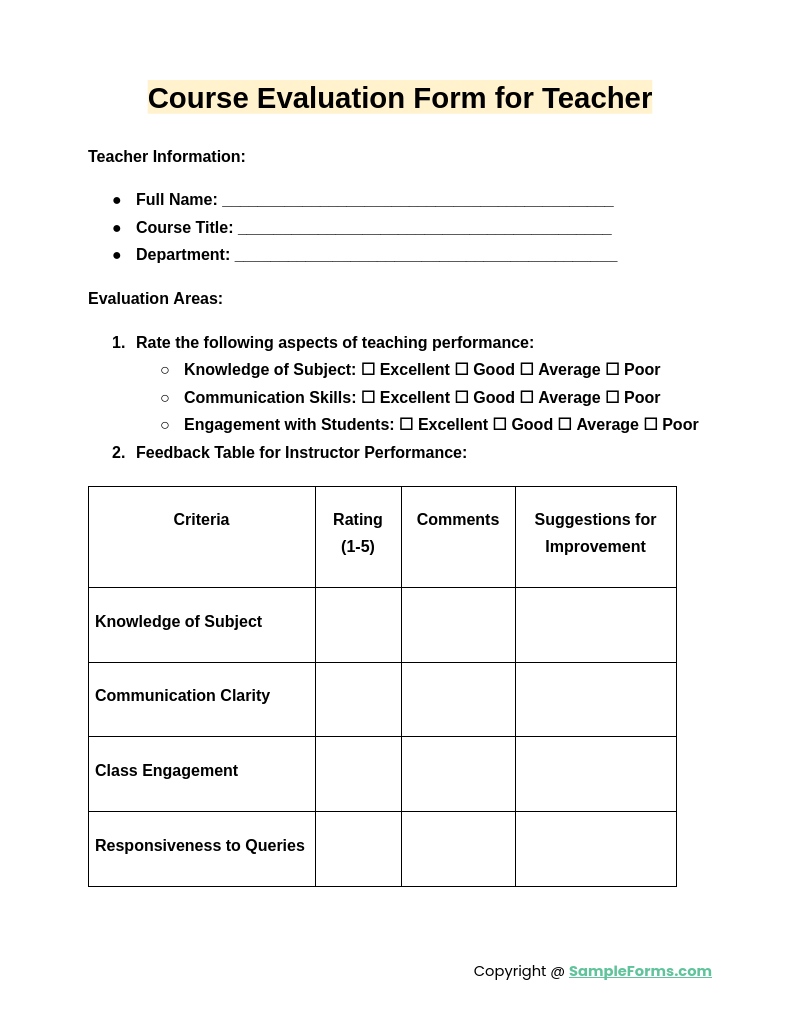
A Course Evaluation Form for Teacher assesses an instructor’s teaching effectiveness, engagement, and communication skills. It provides actionable insights for professional growth, paralleling the structure of an Employee Self Evaluation Form for reflective feedback.
Classroom Course Evaluation Form
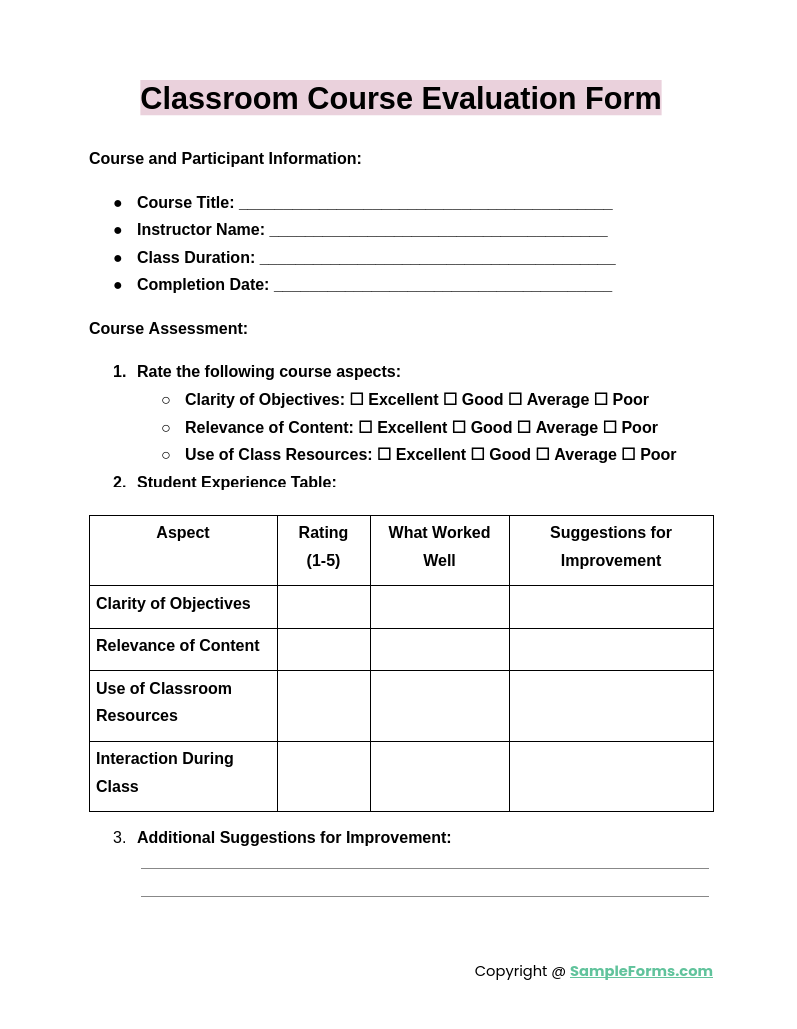
A Classroom Course Evaluation Form focuses on evaluating in-person teaching environments, resources, and interaction quality. Much like a Peer Evaluation Form, it fosters collaboration by gathering feedback from participants about collective learning experiences.
Online Course Evaluation Form
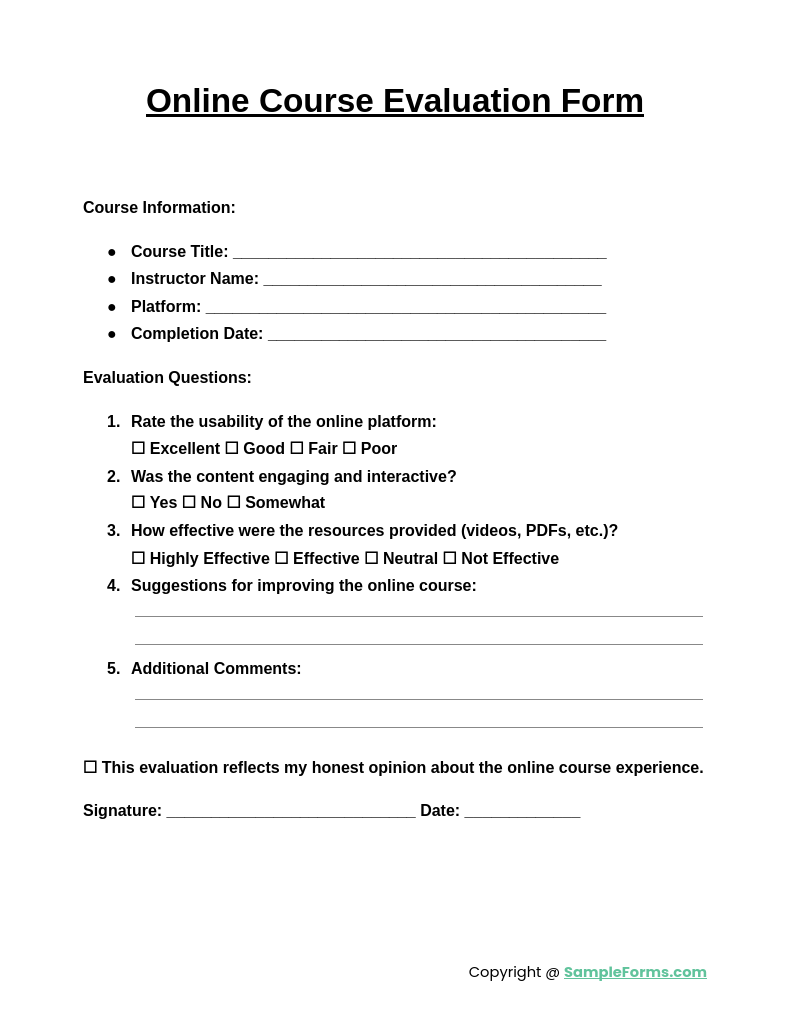
An Online Course Evaluation Form measures the effectiveness of digital platforms, course design, and content delivery. Like a Training Evaluation Form, it ensures the online course meets learning objectives and aligns with participant expectations.
Browse More Course Evaluation Forms
College Course Evaluation Form
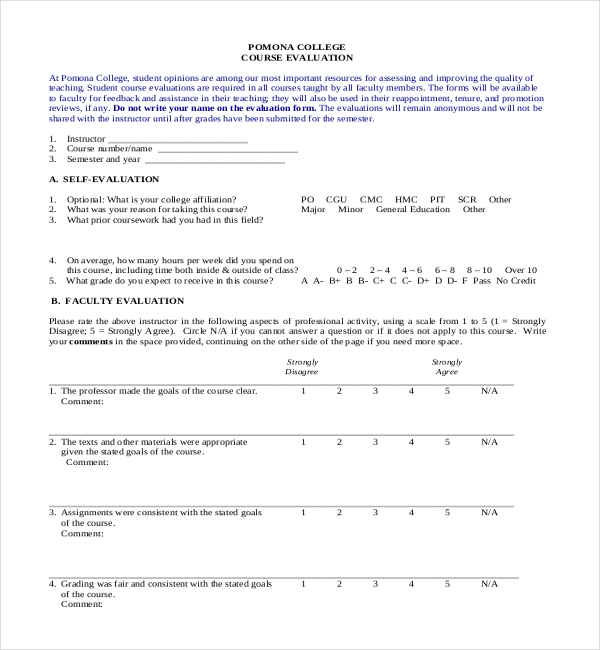
pomona.edu
High School Course Evaluation Form
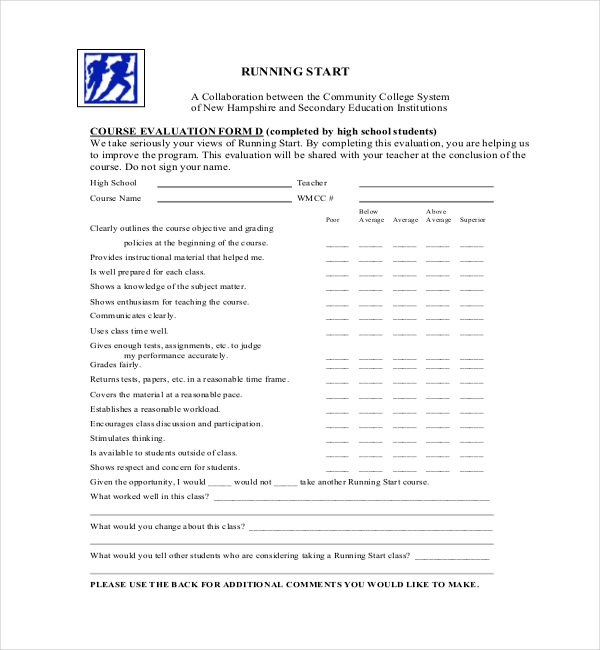
wmcc.edu
Army Course Evaluation Form
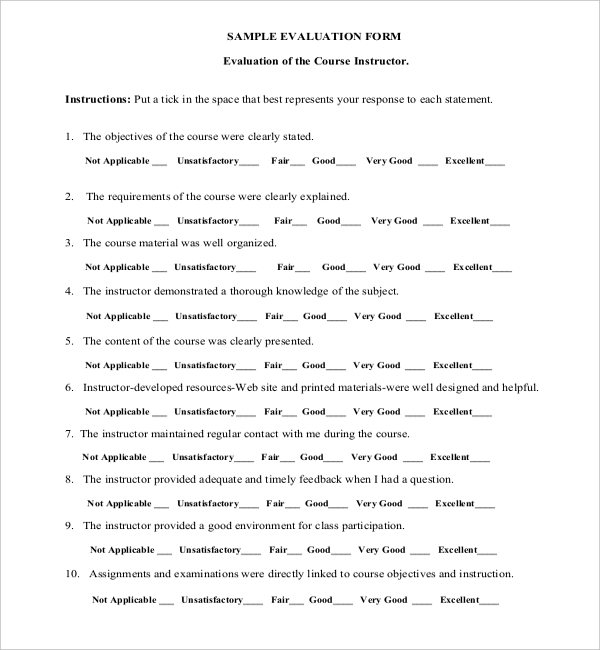
wikieducator.org
Basic Course Evaluation Form
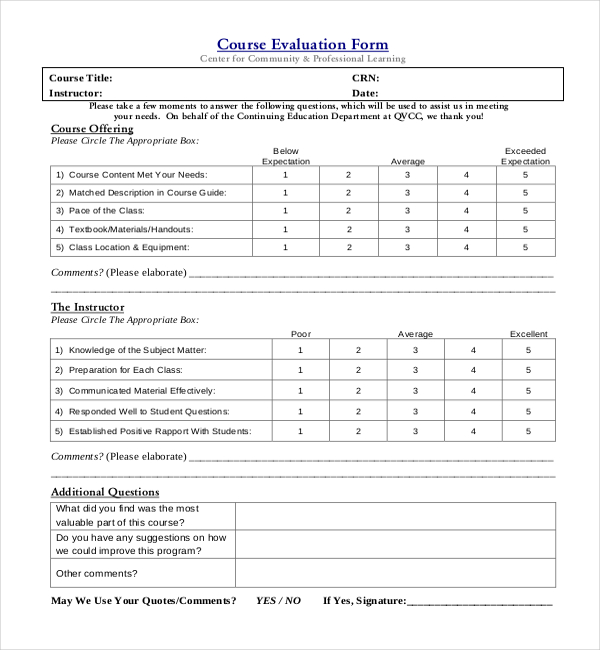
qvcc.edu
Biology Course Evaluation Form
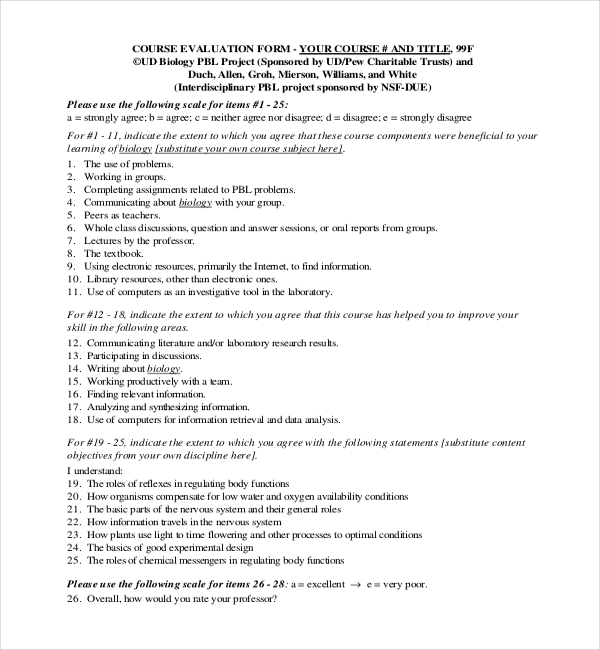
udel.edu
Design Course Evaluation Form
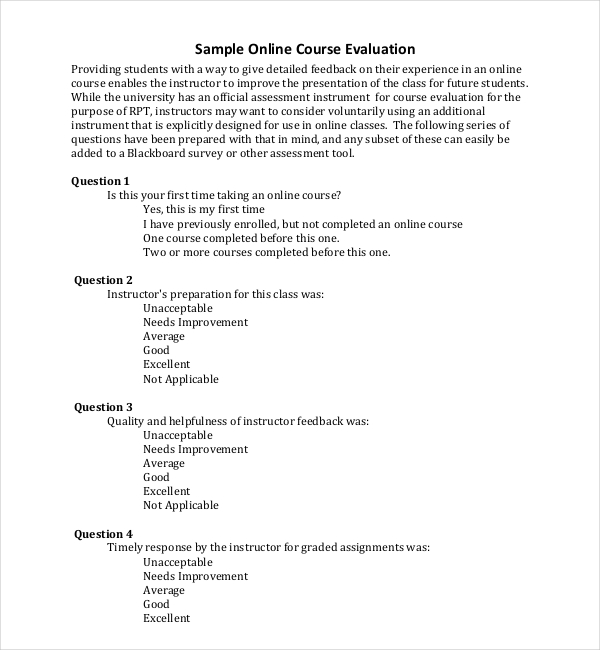
teachonline.csustan.edu
Education Course Evaluation Form
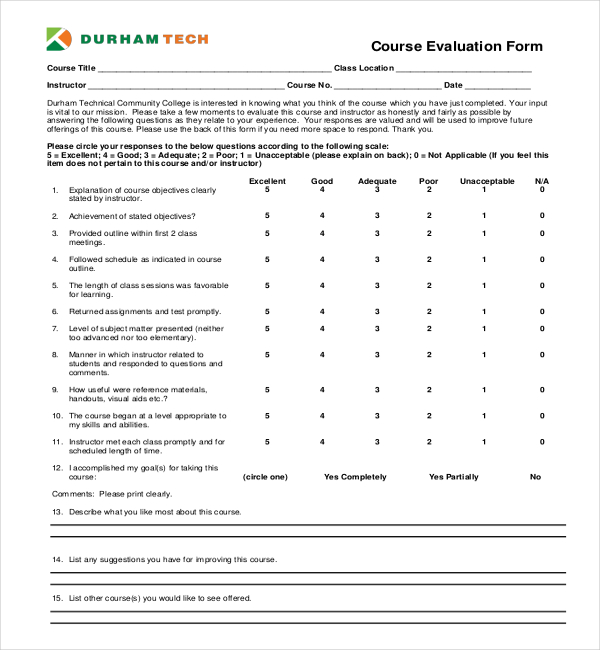
durhamtech.edu
English Course Evaluation Form
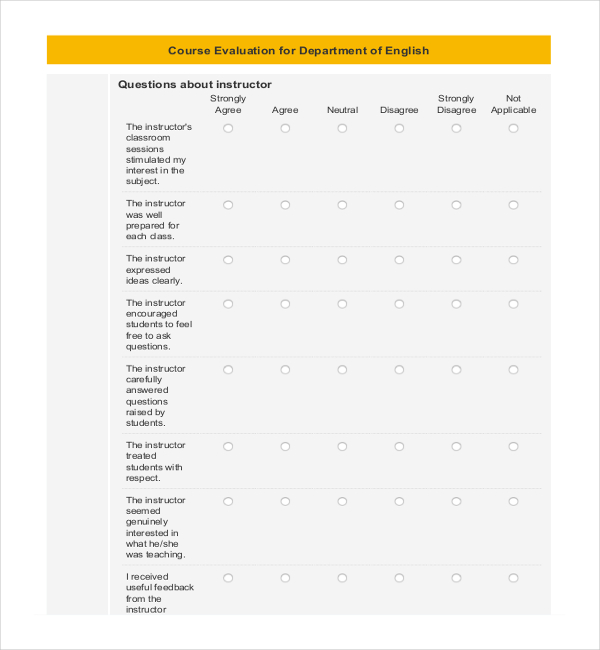
pubapps.vcu.edu
FEMA Course Evaluation Form
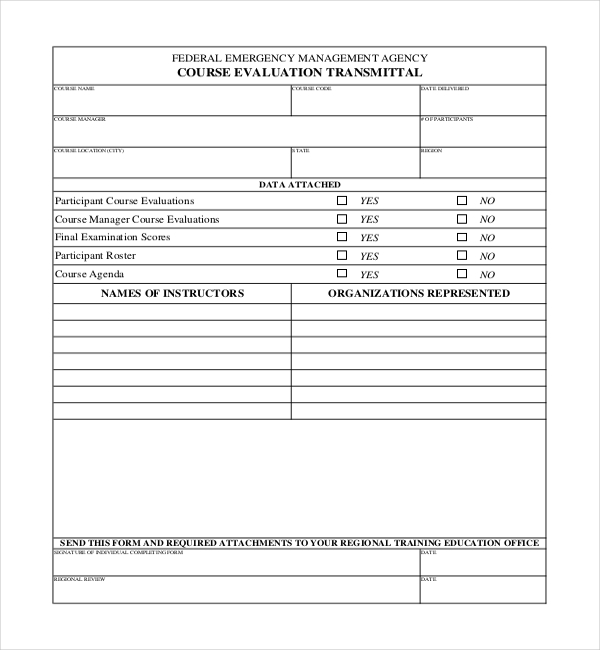
training.dps.mo.gov
First Aid Course Evaluation Form
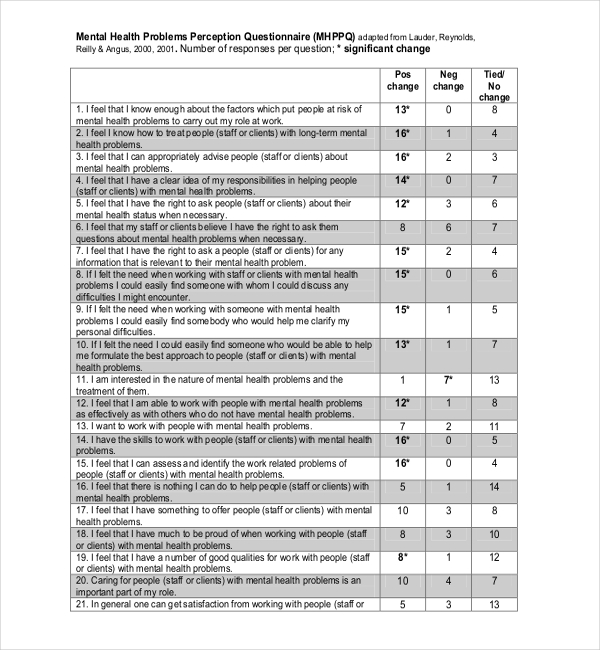
mhfaengland.org
Golf Course Evaluation Form
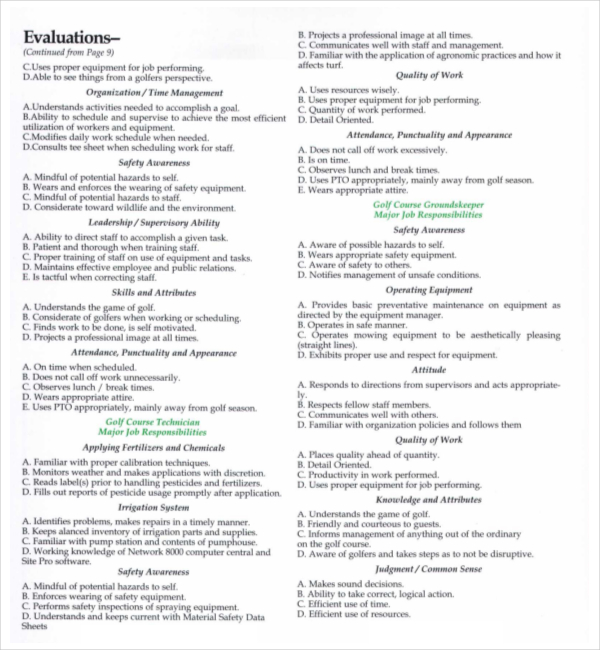
archive.lib.msu.edu
Language Course Evaluation Form
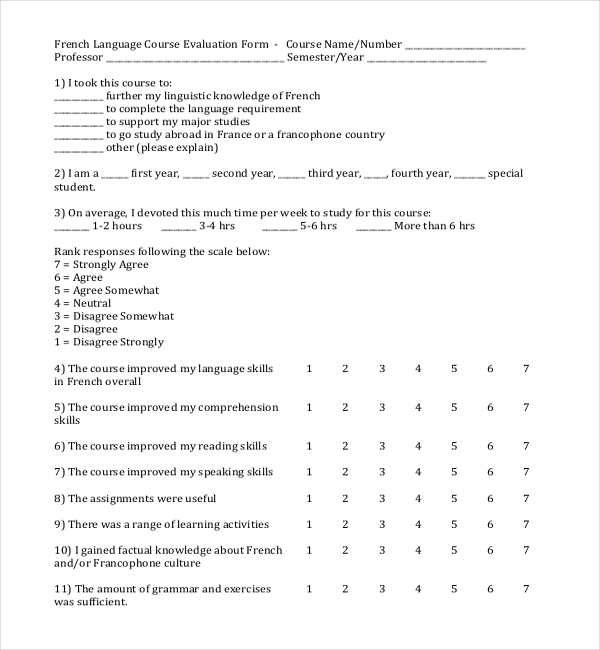
macalester.edu
Leadership Course Evaluation Form
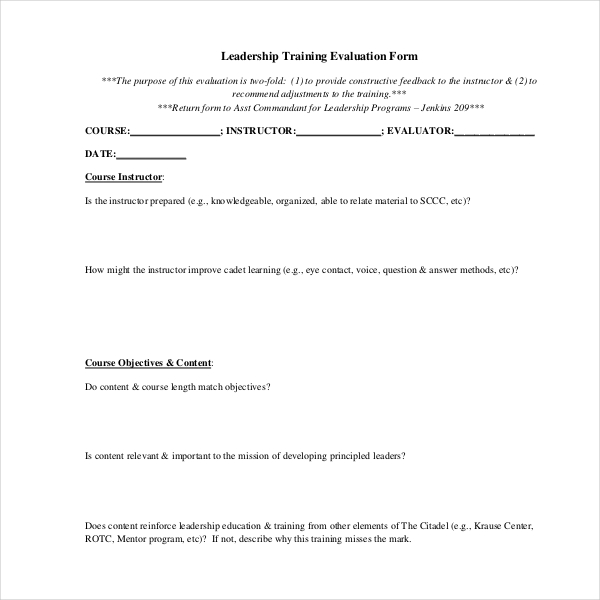
citadel.edu
Lab Course Evaluation Form
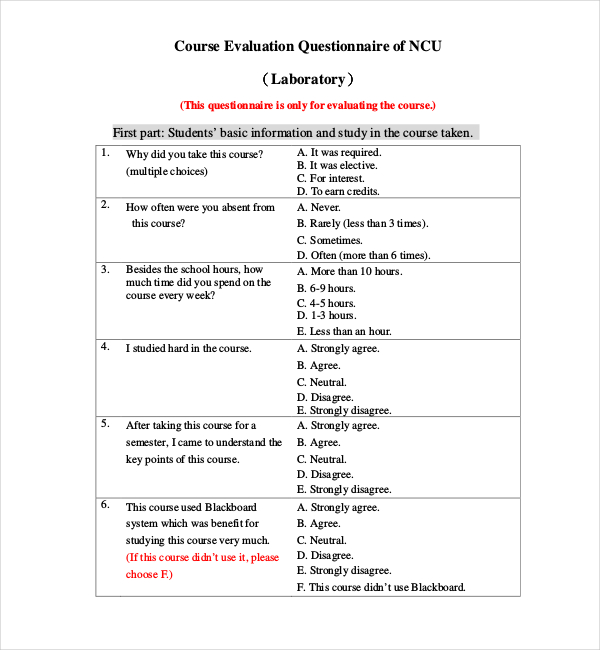
pdc.adm.ncu.edu.tw
Medical Course Evaluation Form
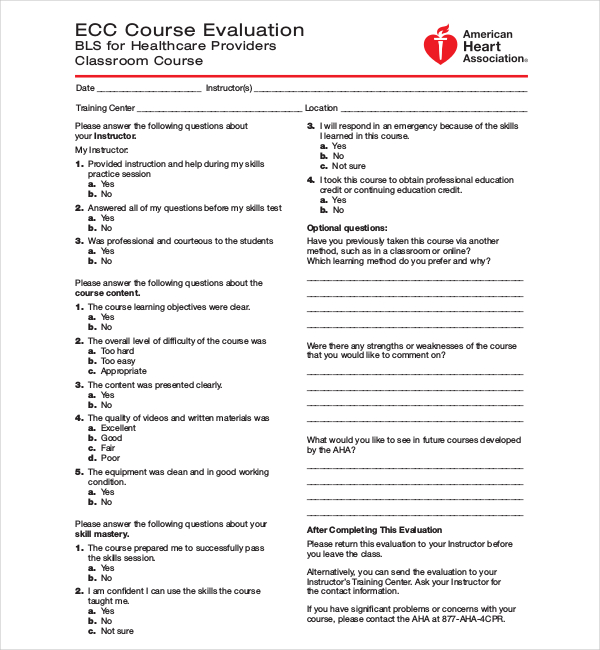
tamiu.edu
Nursing Course Evaluation Form
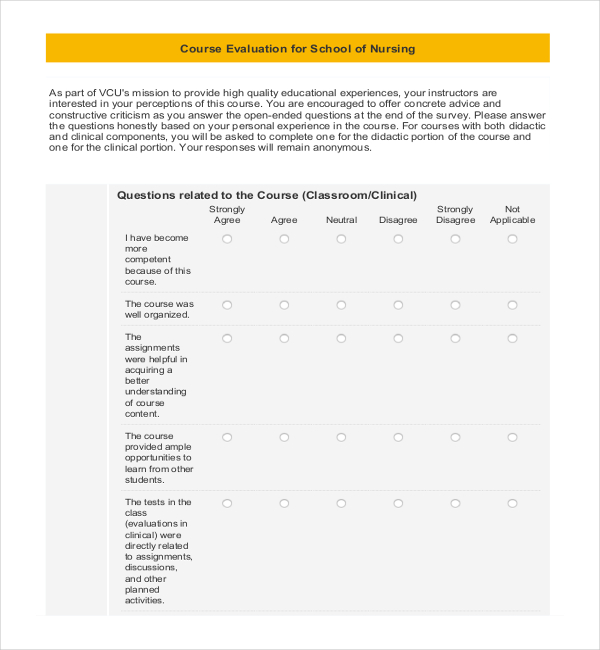
pubapps.vcu.edu
Online Course Evaluation Form
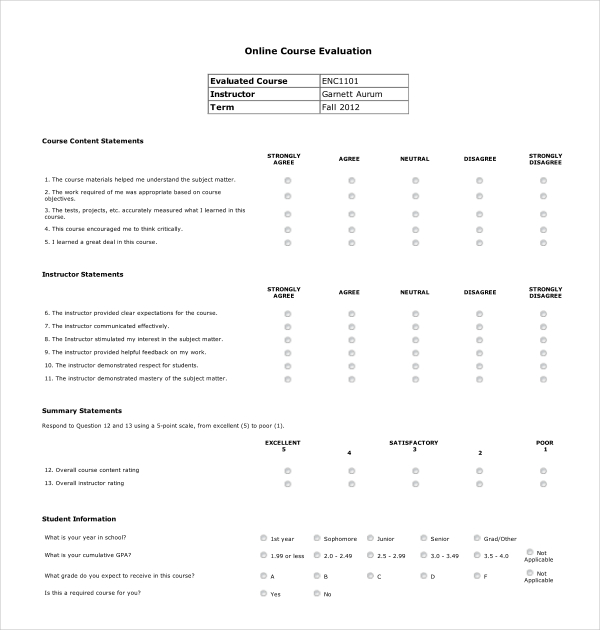
distance.fsu.edu
Pals Course Evaluation Form
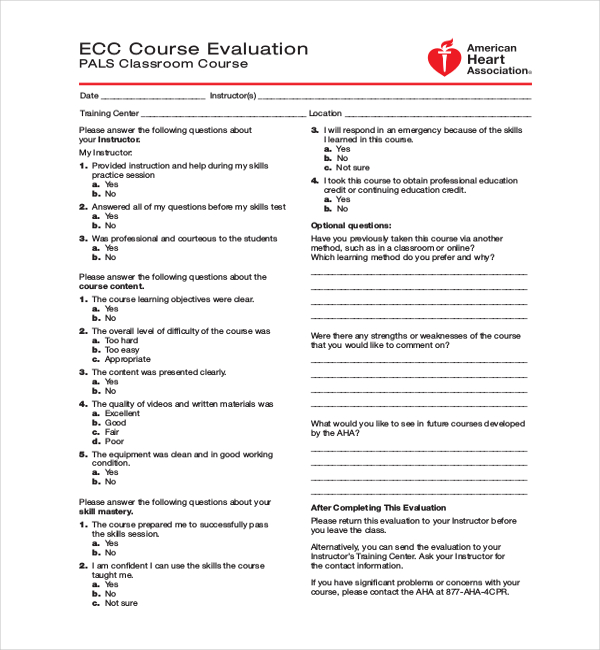
nationalemsacademy.com
Pre Course Evaluation Form

alfaroteachsmart.com
Post Course Evaluation Form

cea.gov.sg
Teacher Course Evaluation Form

memphis.edu
University Course Evaluation Form
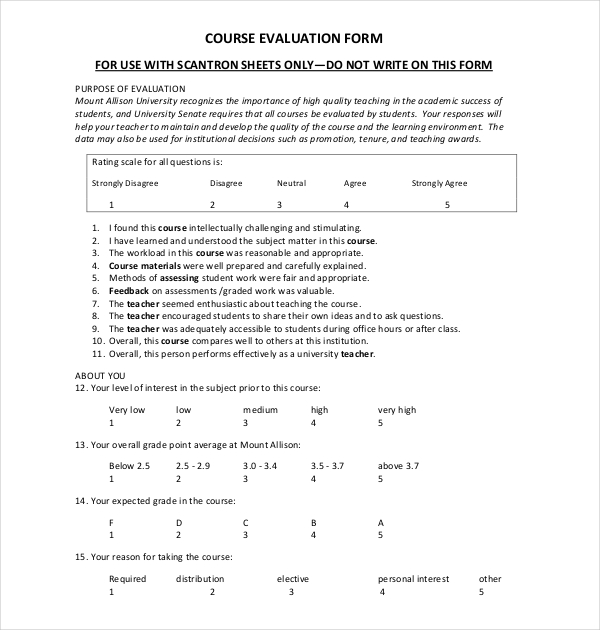
mta.ca
Yoga Course Evaluation Form

backforyoga.com
Student Course Evaluation Form
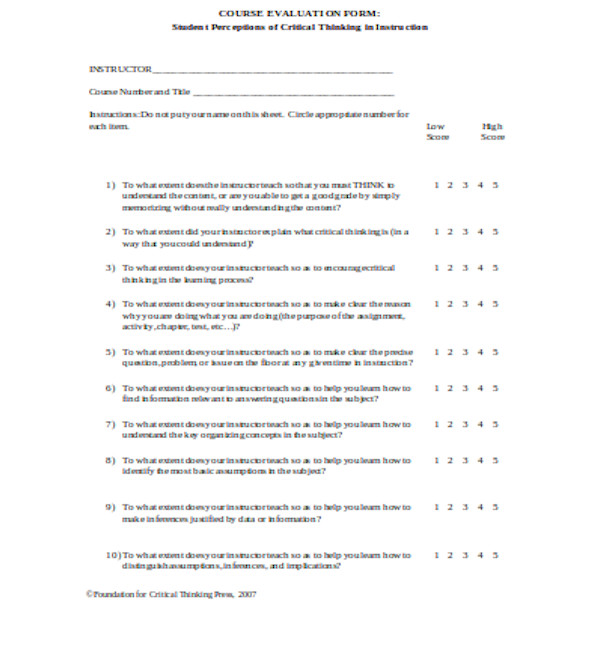
criticalthinking.org
Basic Course Evaluation Form
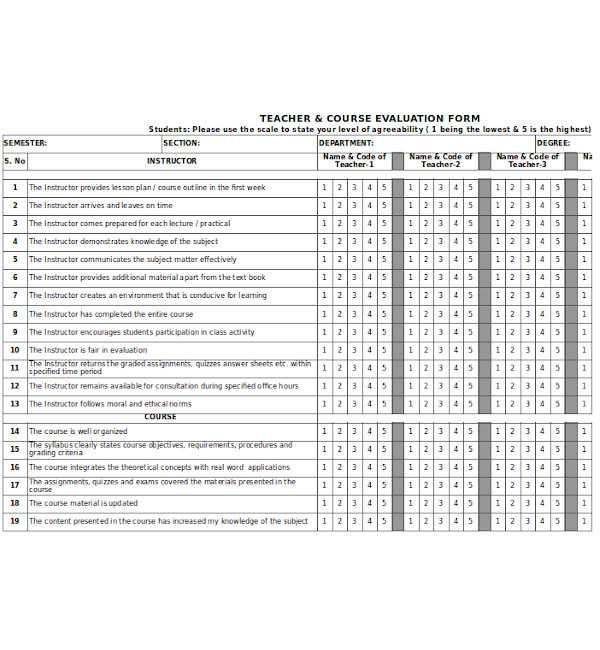
pu.edu.pk
How to write an evaluation of a course?
Writing a course evaluation involves gathering feedback to assess its effectiveness and impact on participants. Key steps include:
- Define Objectives: Identify the purpose of the evaluation, similar to setting goals in a Call Monitoring Evaluation Form.
- Choose a Format: Decide on the type of form—online, written, or verbal—for collecting feedback.
- Include Relevant Questions: Cover areas like content, delivery, and engagement to ensure comprehensive feedback.
- Add Rating Scales: Use numerical or descriptive scales for measurable results.
- Summarize Feedback: Analyze data and summarize insights to identify strengths and improvement areas.
What is the purpose of course evaluation?
Course evaluations provide insights into content effectiveness, teaching quality, and participant satisfaction. Their purpose ensures continuous improvement and learner-focused outcomes. Key objectives include:
- Enhance Content: Ensure course material aligns with learning goals, similar to refining content in an Interview Evaluation Form.
- Improve Teaching: Identify areas for professional development in instructional methods.
- Measure Satisfaction: Assess whether participants found the course engaging and relevant.
- Optimize Delivery: Evaluate the effectiveness of tools and resources used during the course.
- Support Decision-Making: Use feedback to guide future course updates and resource allocation.
How do I fill out an evaluation form?
Filling out an evaluation form involves providing honest and constructive feedback on course aspects. Key steps include:
- Review Instructions: Read the form guidelines carefully, much like filling out a Presentation Evaluation Form for clarity.
- Rate Specific Areas: Provide numerical or descriptive ratings for course components like content, instructor, and delivery.
- Write Comments: Offer detailed comments to support your ratings, highlighting strengths and areas for improvement.
- Stay Objective: Focus on facts and your experience without bias.
- Submit Promptly: Ensure timely submission to contribute to the evaluation process effectively.
How to create a training evaluation form?
Creating a training evaluation form involves structuring it to collect actionable feedback from participants. Steps include:
- Identify Goals: Define what you want to measure, such as engagement or learning outcomes, similar to a Food Sensory Evaluation Form.
- Design Questions: Include a mix of rating scales, multiple-choice, and open-ended questions.
- Ensure Simplicity: Keep the form user-friendly to encourage participation.
- Test the Form: Pilot it with a small group to identify any issues.
- Analyze Feedback: Use responses to identify strengths and areas for training improvement.
What are the different types of course evaluation?
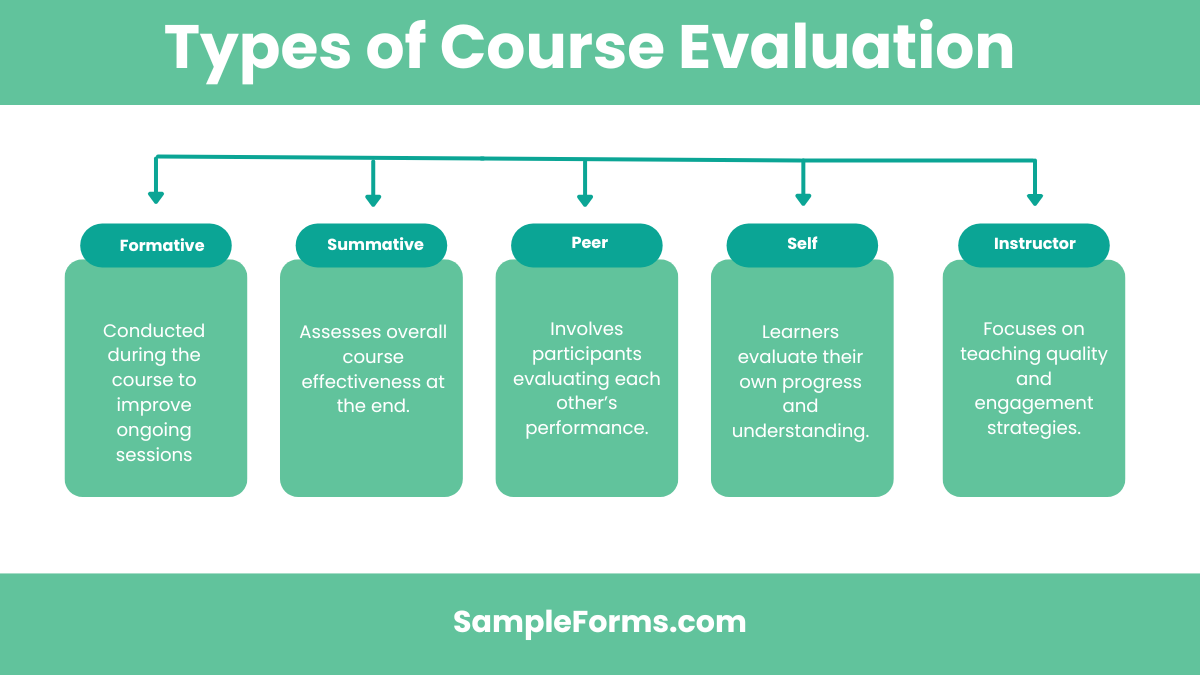
Course evaluations can take various forms to assess different aspects of learning experiences. Common types include:
- Formative Evaluation: Conducted during the course to improve ongoing sessions, similar to a Speech Evaluation Form for real-time feedback.
- Summative Evaluation: Assesses overall course effectiveness at the end.
- Peer Evaluation: Involves participants evaluating each other’s performance.
- Self Evaluation: Learners evaluate their own progress and understanding.
- Instructor Evaluation: Focuses on teaching quality and engagement strategies.
What is a sample sentence for self evaluation?
“I consistently meet deadlines and strive to improve my skills, as highlighted in my Resume Evaluation Form.”
What is a course evaluation template?
A course evaluation template is a pre-designed structure for gathering feedback on course content and delivery, similar to a Driver Evaluation Form.
What is a course evaluation summary?
A course evaluation summary consolidates participant feedback into actionable insights for improvement, much like a Sales Evaluation Form aggregates data for strategic decisions.
What does a course evaluation look like?
A course evaluation includes structured questions, rating scales, and open-ended sections for feedback, resembling a Candidate Evaluation Form for assessing skills.
What do you say when evaluating a course?
Provide constructive feedback, emphasizing strengths and suggesting improvements, as you would in a Customer Service Evaluation Form to enhance service quality.
What is a school evaluation form?
A school evaluation form assesses academic programs, teacher performance, and student outcomes, following a structure similar to a Bid Evaluation Form.
What is education evaluation document?
An education evaluation document measures the effectiveness of educational initiatives and aligns with standards, much like a Basketball Evaluation Form for player performance.
What is a good sentence for evaluation?
“The program effectively addressed learning objectives while fostering engagement, similar to the standards outlined in a Restaurant Employee Evaluation Form.”
What is a course evaluation template?
A course evaluation template structures feedback collection on course effectiveness, akin to a Financial Evaluation Form for assessing fiscal strategies.
What is a standard evaluation form?
A standard evaluation form provides a consistent format for measuring performance or outcomes, paralleling a Proposal Evaluation Form for structured assessments.
The Course Evaluation Form use guide highlights the importance of structured feedback for enhancing educational quality. From classroom settings to online courses, these forms ensure meaningful insights into teaching effectiveness and student satisfaction. By understanding the principles behind crafting evaluation forms, you can align them with specific goals and outcomes, much like a Vendor Evaluation Form does for professional reviews. This guide empowers educators and institutions to leverage evaluations as tools for continuous learning and improvement.
Related Posts
-
FREE 6+ Business Credit Checklist Forms in PDF
-
Employee Pay Increase Form
-
Chef Evaluation Form
-
FREE 8+ Kitchen Evaluation Forms in PDF | MS Word
-
Customer Service Evaluation Form
-
FREE 15+ Grant Evaluation Forms in PDF | MS Word
-
FREE 14+ Volunteer Evaluation Forms in PDF
-
Mentee Evaluation Form
-
Speaker Evaluation Form
-
FREE 14+ Vehicle Evaluation Forms in PDF
-
FREE 14+ Trainee Evaluation Forms in MS Word | PDF
-
Resume Evaluation Form
-
FREE 14+ Retreat Evaluation Forms in PDF
-
Debate Evaluation Form
-
FREE 14+ Book Evaluation Forms in PDF | MS Word
